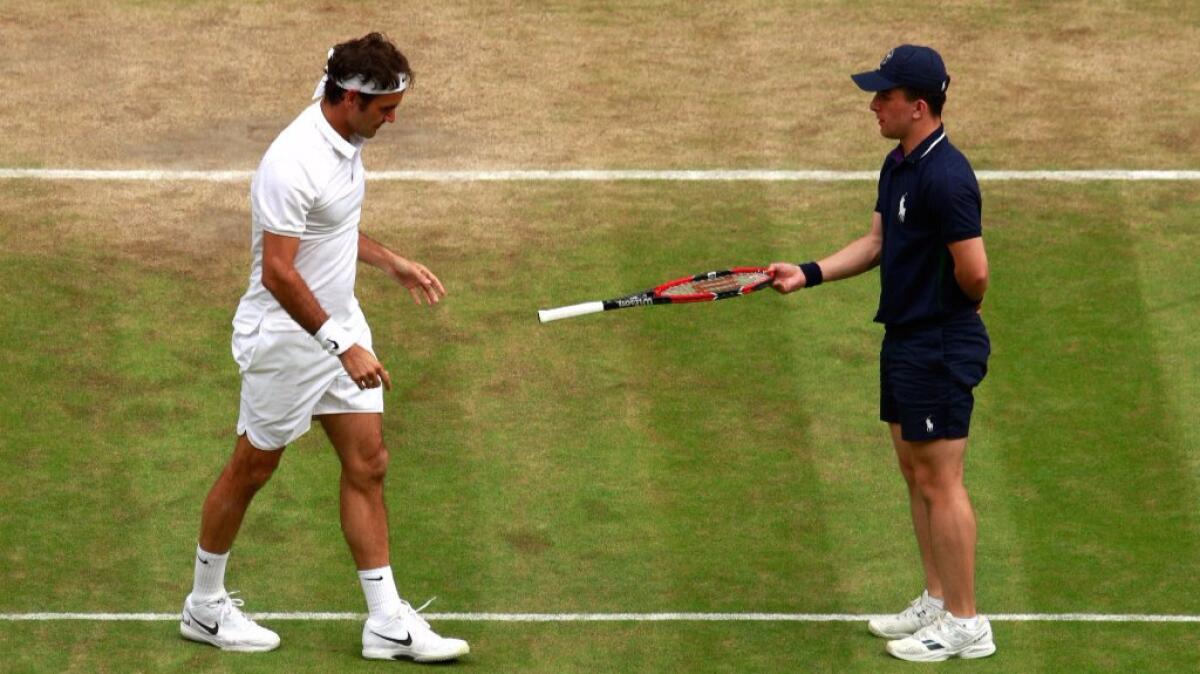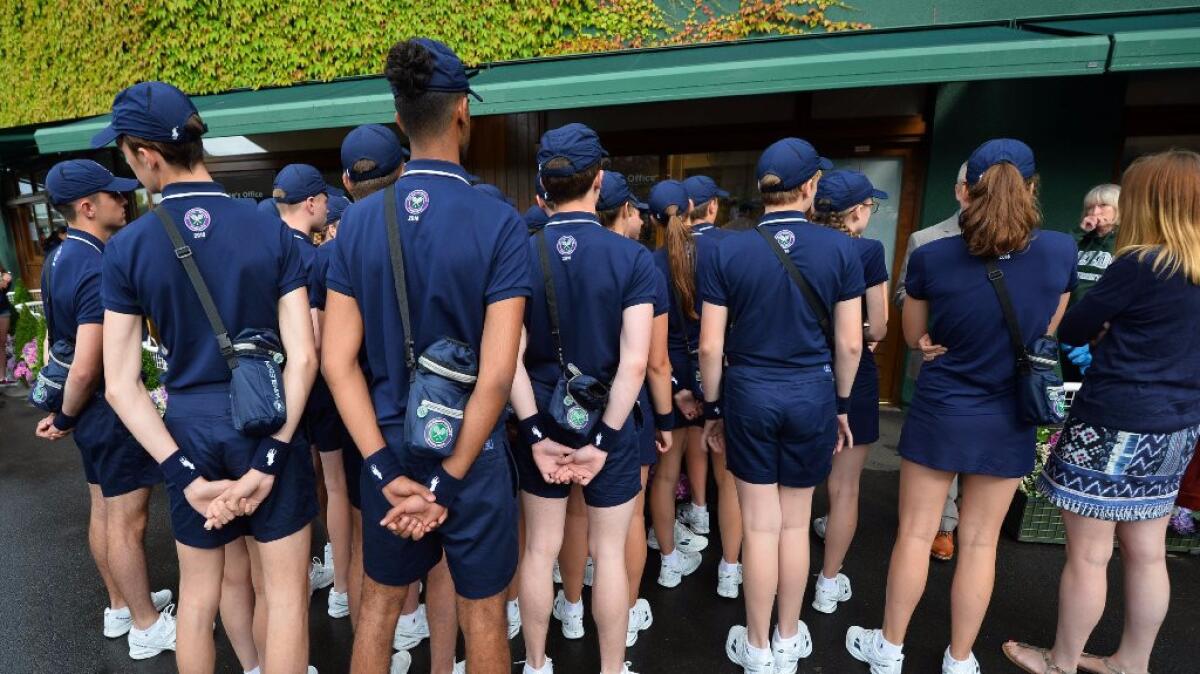Meet Wimbledon’s guardians of the court

They’re closer to the Wimbledon action than anyone but the players, but they’re doing their job when they’re all but unnoticed.
They are the blue-clad ball boys and ball girls, and theirs are coveted and competitive positions.
“They’re very much the guardians of the court,” said Sarah Goldson, manager of the Wimbledon ball boys and ball girls, called BBG by the club and simply ball kids by the players.
There is a rich BBG tradition, with approximately 250 ball kids chosen from a pool of 800 applicants. And not just anyone can apply. They are nominated by one of 32 participating schools in the London area, and their ages range from 14 to 18.
Ball girls were introduced in 1977, and the tournament is roughly 50/50 ball boys and ball girls.
Although there’s no specific height or weight requirement, the six BBGs working a match need to be able to stand perfectly still for long periods, then chase down balls as quickly as they possibly can. They look like they’re running for their lives.
“We emphasize from the start that it should be maximum urgency all the time whatever they’re doing, even if they’re sprinting or the speed at which their arm goes up at the end of a point,” Goldson said. “Any sign of jogging or walking in training is a big no-no. Obviously, they’re not all going to be as quick as each other, but as long as they’re going as fast as we think they can go, that’s fine.”
There’s a regimented precision to everything the BBGs do, from the way they march onto the court before a match, to the way they feed the balls to the players – tossing them with the motion of a slot-machine handle – to the way they roll the balls the length of the court. Those balls must be rolled, not bounced, parallel to the lines of the court, arriving in the order they were released.
“You definitely have to perfect your skills, with the feeding and the rolling,” said ball boy Henry Johnson, 14. “It can’t be bouncy, it can’t ping in a different direction. It has to be straight and accurate.”
There are a host of other rules, too, instilled in the ball kids when their training begins in January. They have a specific way of handling players towels, for instance, lengthwise without letting the towel touch the ground.
“When a player falls,” Goldson said, “you pick up their racket, but don’t be poking it at them if they’re on the floor. Step back.”

Players have their own peculiarities and superstitions. Some of them want a towel after every point. Others want the ball fed to them only from one side of the court. When Andy Murray serves an ace – as he hopes too often in Sunday’s men’s singles finals – he wants that ball back to serve again.
And the BBG’s job should be performed in virtual silence. There have been aspiring ones who are weeded out when they offer opinions on line calls.
“In training, the only thing we say is, ‘If a player asks to comment on a line call, it’s very much, ‘I’m sorry, sir,’ or, ‘I’m sorry, miss. I cannot comment,’ ” Goldson said. “So if they’re asked a question, they should reply, but they shouldn’t have an opinion, certainly not on line calls or anything like that. We test that during training.”

The hardest part of the job might simply be standing at attention for long stretches, one of the reasons the teams of BBGs are rotated every hour.
“When it’s very hot, you have to have endurance,” said ball boy Alex Peck, 14. “You have to keep sprinting and you can’t stop, you can’t give up. You have to keep going until your shift’s over.”
For much of their shift, they are the Buckingham Palace guards of tennis.
“We say to them if they’ve made it to the championships they’re all excellent,” Goldson said. “Everyone who’s here at the championships is the gold standard, otherwise they wouldn’t be here.”
Follow Sam Farmer on Twitter @LATimesFarmer
More to Read
Go beyond the scoreboard
Get the latest on L.A.'s teams in the daily Sports Report newsletter.
You may occasionally receive promotional content from the Los Angeles Times.











